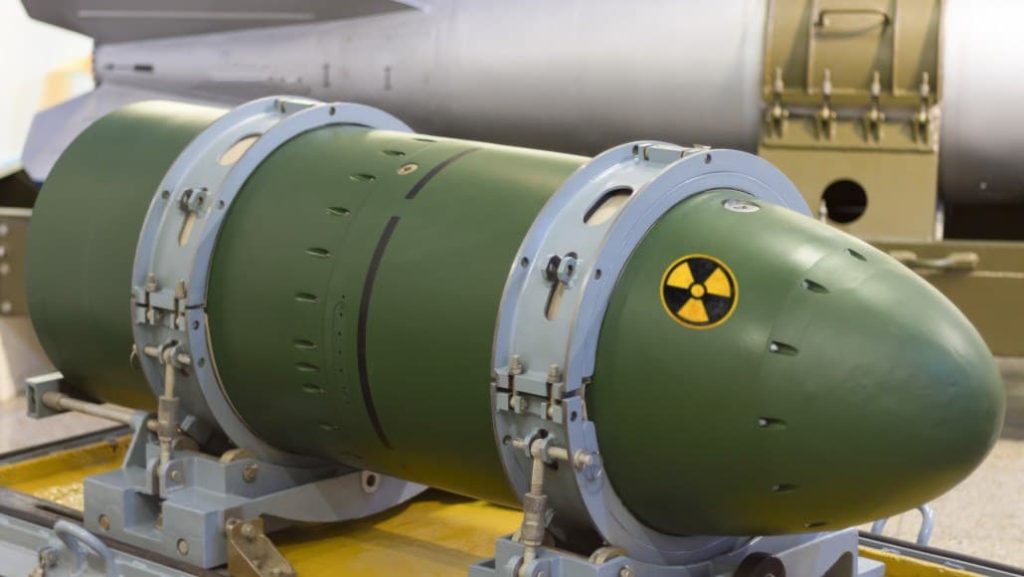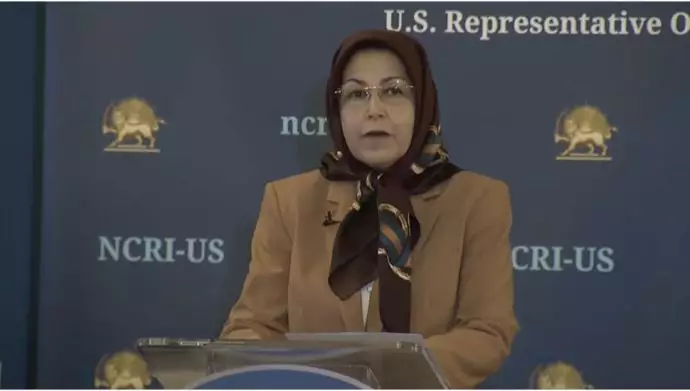
The NCRI held a press conference in Washington on August 14, 2002, to discuss ongoing work on nuclear weapons at covert locations close to the Iranian cities of Natanz and Arak.
Following the 20th anniversary of the initial public disclosures about the country’s nuclear weapons program, a number of specialists in international security and non-proliferation met with representatives of the National Council of Resistance of Iran (NCRI) in Washington, D.C. on Wednesday to talk about the current status of Iran’s nuclear ambitions.
The Iranian government soon acknowledged the existence of those two sites in response to the subsequent international scrutiny, and the International Atomic Energy Agency (IAEA) started an investigation and monitoring process that is still in place today.
According to Soona Samsami of the NCRI’s US representative office, the NCRI’s disclosures, of which there have been more than 100 over the past 20 years, have continuously aided in that investigation. She also argued that the lack of a decisive international response to Iran’s nuclear weapons ambitions has allowed it to make the kinds of advancements that are prominently displayed amidst fledgling negotiations to restore the 2015 nuclear deal known as the Joint Comprehensive Plan of Action or JCPOA.

“Were it not for those revelations, the most active state sponsor of terror would have had the most dangerous weapon by now,” she said at Wednesday’s conference.
Now, the regime routinely enriches uranium to 60 percent fissile purity, far above the 20 percent maximum it had attained before the JCPOA was signed, and only a small technical distance from weapons grade.
The regime and its supporters have frequently tried to portray those advancements as reversible costs of the US withdrawal. But IAEA Director General Rafael Grossi has acknowledged that Iran’s nuclear program has expanded beyond the point at which the JCPOA’s original terms would effectively restrain it. These developments have also been used by Iranian regime institutions and officials to openly brag about the possibility of “breaking out” to nuclear weapons capability.
The gravity of such threats is underscored by the fact that terrorist plots all over the world continue to be traced back to Tehran. Just last week, the US Department of Justice made public its case against an IRGC member who had actively sought assassins to kill John Bolton, the former US national security adviser.
In an interview with the state-run TV, Jan 2019, Ali Akbar Salehi, former head of the regime’s Atomic Energy Organization acknowledged that they had lied about the Arak site during negotiations and had hidden prohibited equipment, upon Khamenei’s order.10/pic.twitter.com/AuMuE85P85
— Alireza Jafarzadeh (@A_Jafarzadeh) June 7, 2022
Bolton happened to be one of the speakers at the NCRI conference, where he argued against carrying on negotiations with a government that openly threatens Western lives and interests while secretly pursuing nuclear weapons.
This regime has lied about its nuclear program for more than 20 years, Bolton claimed. “Therefore, the reality is that the regime will not comply with it in case of any deal made.”
On Wednesday, the NCRI provided evidence to back up claims made by Bolton and others about the extreme likelihood of the regime breaking future agreements, including revelations of specific sites like a centrifuge testing facility at Kala Electric as well as general information about the nuclear program’s structure. As Soona Samsami put it, “The indisputable fact has been and [remains] that the regime in Tehran will never abandon its [pursuit of a] nuclear weapon because it views it as a guarantee for its survival.”
The fact that Tehran has persisted in blocking negotiations that some parties had expected to reach an agreement on late last year has strengthened accusations of appeasement in recent days. The “final text” of an agreement to reinstate the JCPOA was presented last week by the European Union’s coordinator for the nuclear negotiations. The regime responded on Monday by once more demanding that the West give in to demands that had already been categorically rejected.
While the regime’s steadfast commitment to achieving nuclear breakout is reflected in its refusal to accept the draft agreement, its corresponding refusal to withdraw from the JCPOA is reflected in a need to project strength in negotiations with Western adversaries. The question at hand is whether or not the Western powers would support the just cause in that conflict.
MEK Iran (follow us on Twitter and Facebook), Maryam Rajavi’s on her site, Twitter & Facebook, NCRI (Twitter & Facebook), and People’s Mojahedin Organization of Iran – MEK IRAN – YouTub

